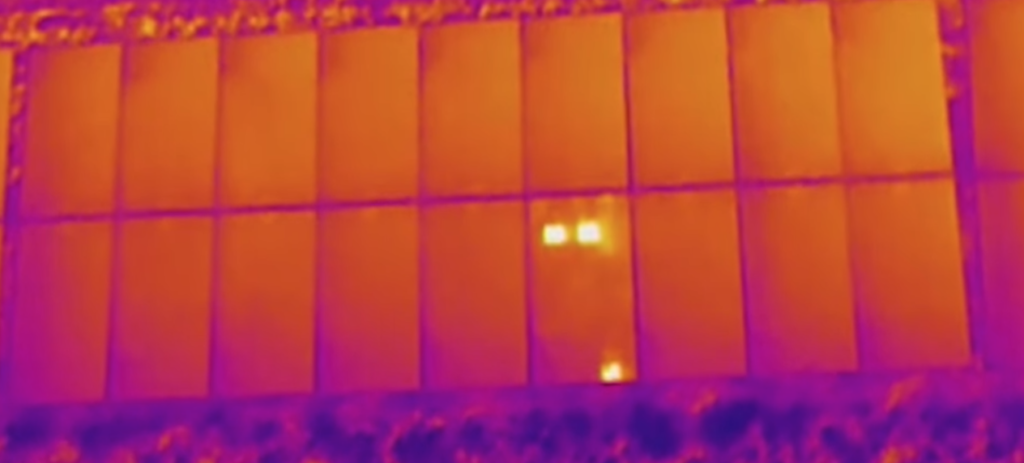
Above is an example of a damaged solar panel. The thermal drones do a great job of highlighting “hot spots” or defects in the panels.
Thermal drones offer an innovative and efficient solution for inspecting solar panels. By combining the power of aerial imaging and thermal technology, these drones can revolutionize the way we monitor and maintain solar energy systems. Equipped with high-resolution thermal cameras, thermal drones can detect variations in temperature across the surface of solar panels with remarkable accuracy.
When it comes to inspecting solar panels, thermal drones excel in several ways. Firstly, they provide a comprehensive and rapid assessment of the panels’ performance. By capturing thermal images, they can identify any hotspots or anomalies that may indicate malfunctioning cells or faulty wiring. This early detection enables prompt maintenance and repairs, preventing potential energy loss and ensuring optimal panel efficiency.
Moreover, thermal drones offer a significant advantage in terms of accessibility. Solar panels are often installed on rooftops or in remote areas, making manual inspections time-consuming, costly, and sometimes hazardous. However, with thermal drones, the inspection process becomes streamlined and safe. These drones can effortlessly navigate complex terrains and hard-to-reach locations, eliminating the need for human inspectors to physically access challenging areas.
The data collected by thermal drones during inspections is invaluable for solar panel maintenance. By analyzing the thermal images, professionals can determine the health of individual panels and identify patterns or trends in their performance. This data-driven approach allows for proactive maintenance, as potential issues can be addressed promptly, minimizing downtime and maximizing the overall energy output of the solar installation.
In addition, thermal drones are highly efficient when it comes to large-scale inspections. They can cover vast areas in a fraction of the time it would take for manual inspections, ensuring that solar farms or extensive installations are thoroughly examined in a timely manner. This efficiency saves both time and resources, making thermal drones a cost-effective solution for the solar energy industry.
In conclusion, the integration of thermal drones into the inspection process of solar panels brings numerous benefits. Their ability to capture detailed thermal images, accessibility to challenging areas, provision of data-driven insights, and efficiency in large-scale inspections make them indispensable tools for ensuring the optimal performance and maintenance of solar energy systems. With thermal drones, we can enhance the reliability and sustainability of solar power, ultimately contributing to a greener and more efficient future.

